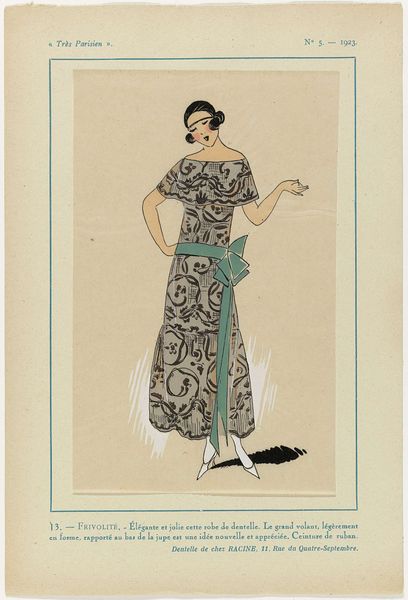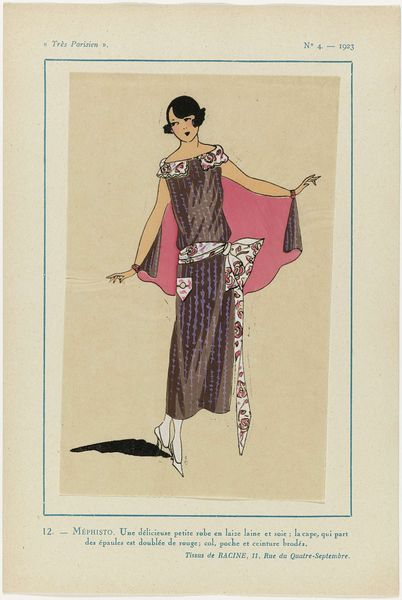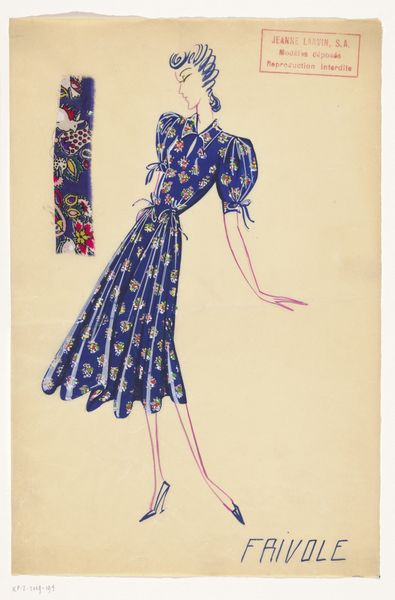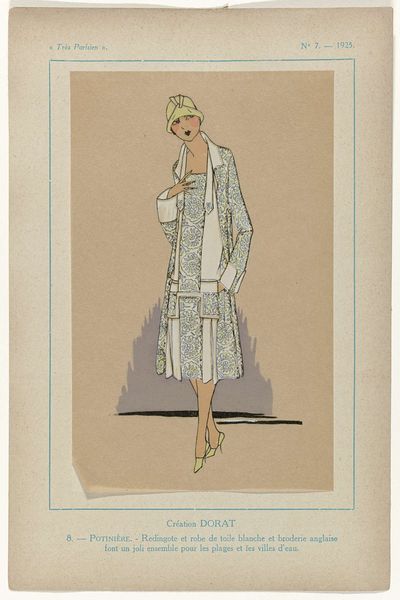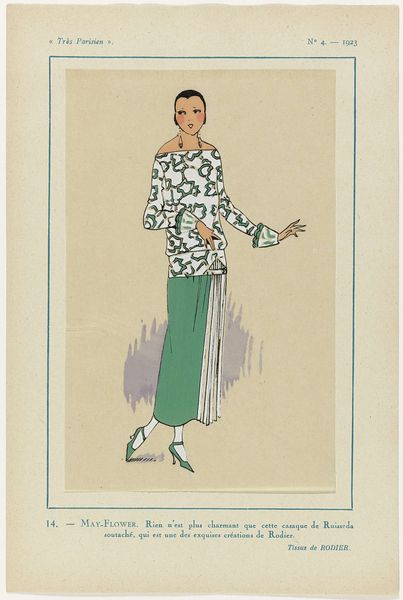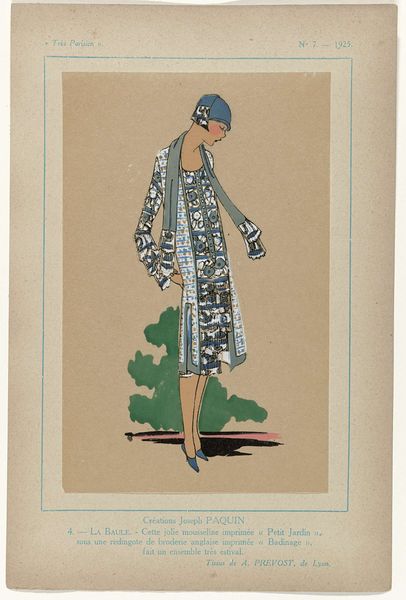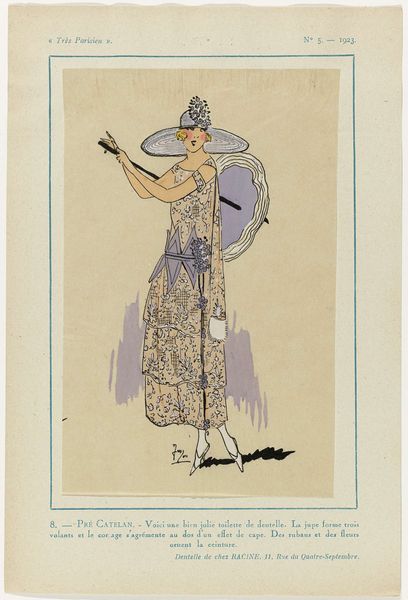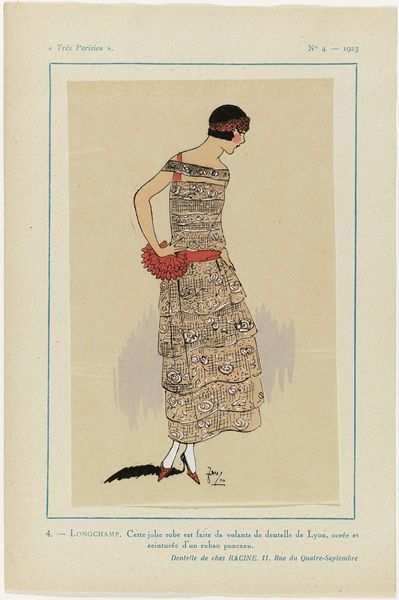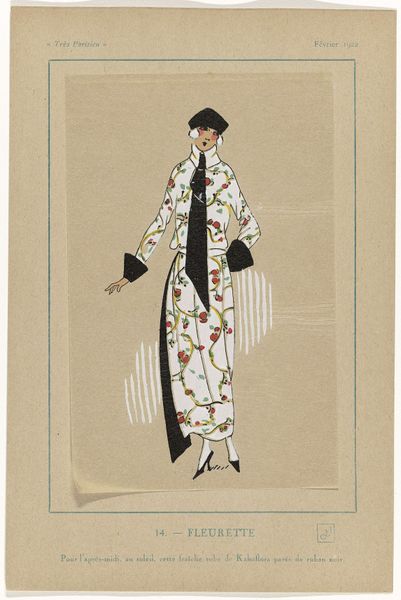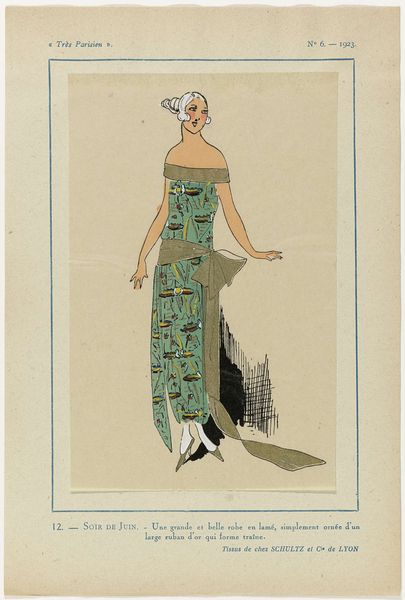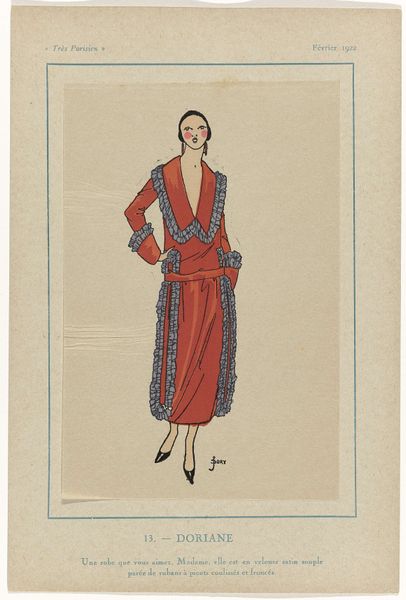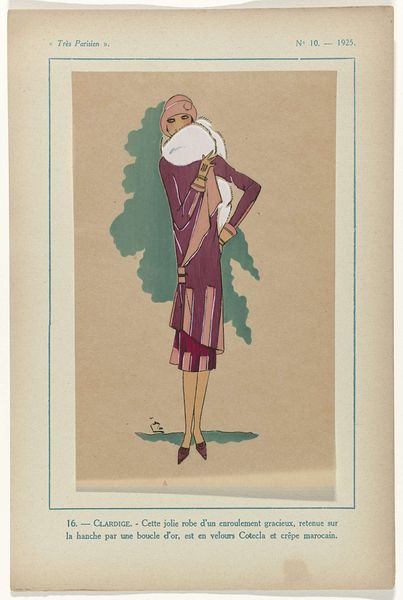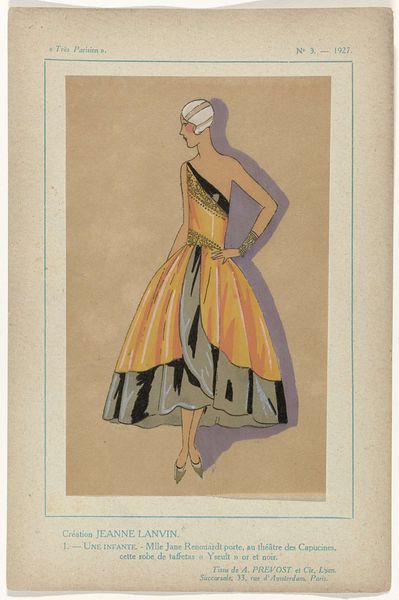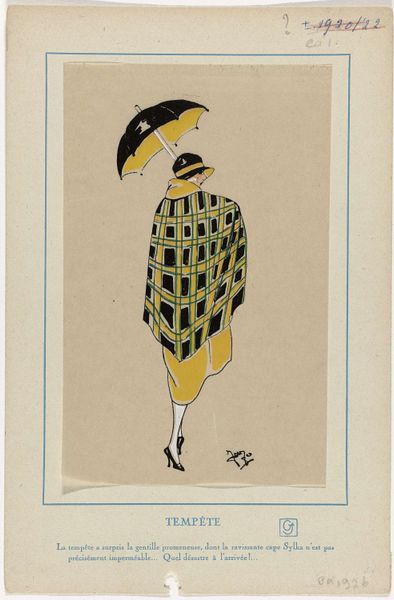
drawing
#
portrait
#
art-deco
#
drawing
#
caricature
#
figuration
#
dress
Dimensions: height 269 mm, width 180 mm
Copyright: Rijks Museum: Open Domain
Editor: Here we have "Très Parisien, février 1922: 3.- PRUNELLE," a drawing from 1922, housed in the Rijksmuseum. It depicts a woman in a strikingly patterned purple dress, a definite Art Deco feel. I find the drawing elegant, but the dress also seems almost like a uniform. What strikes you most about this piece? Curator: I’m immediately drawn to the textile. Look at the implied labor in producing such a patterned fabric – someone designed it, someone wove it, someone printed it. Consider the social context: it's 1922, post-war. This isn't just fashion; it represents a particular kind of industry and consumption available to Parisian women of a certain class. The print's materiality suggests ideas about femininity and leisure, what kind of bodies and lifestyles can afford that visual spectacle? Editor: So you're focusing on the means of production. Does the relatively simple style of the drawing itself—the medium— play a part in that, given it presents a highly crafted output? Curator: Exactly. The seemingly effortless lines belie the intensive material process they represent. This is an image circulating as advertisement. How many women have direct access to these dresses, how many will seek similar styles mass-produced through mechanized, perhaps exploitative means? And what is the status of a drawing: advertising, fashion plate, commodity? Editor: That gives me a lot to think about. I was initially drawn to the aesthetic, but understanding the materiality really transforms my perception. Curator: Seeing art as connected to the larger social systems changes our relationship to the aesthetic experience. Thanks to this connection we find the importance in how we make, not just what is being represented.
Comments
No comments
Be the first to comment and join the conversation on the ultimate creative platform.
